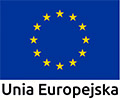On 9th and 10th September a historical forum „Wege zur erinnerung” took place in Gdańsk. It was organized by Polish-German Youth Cooperation PNWM. Treblinka Museum was represented by Anna Remiszewska and Monika Samuel. Participants of the forum listened to an interesting introductory lecture Common experiences – divided cultures of memory. Polish and German image of II World War given by prof. dr hab. Robert Trąba. After the lecture a dispute arose. A matter that triggered the most emotional reactions were differences in perceptions of II World War and its consequences in Poland and Germany. PhD Tomasz Szturo – Assistant Director of education and collections from Museum of the Second World War put into words the essence of the problem: “ Speaking about the history from only one side leads to monologue, while the dialogue is needed.”
Then the organizers introduced a donations program “Zachować pamięć” for years from 2015 to 2019, as well as plans which Polish-German Youth Cooperation wants to implement in 2020.
During the two days of forum the participants took part in the following workshops:
- Our history. Polish – German history textbook and its application in Polish-German projects.
During this classes an idea and history of work on the common Polish – German history textbook was presented. Main goal of this lectures was a presentation of possibilities for usage of the textbook during meetings of Polish and German youth.
- Potential of Arolsen Archives/ International Center on Nazi Persecution in Polish–German projects in memorial sites. Work with documents and objects.
Arolsen Archives is the biggest archive of documents concerning the victims and survivors. The collections consisting of information about 17,5 million people are included in UNESCO list of national heritage ‘Memory of the World’. During this lectures, projects, tools and methods were presented, which enabled broadening the knowledge about nationalism.
- Local search for traces of history during Polish–German youth meetings – accessible for youth thematic approach, long-term effects of project work.
This seminar allowed the participants to get to know different ways of working with young people on the subject of local history, with particular emphasis on finding a common concept and gaining new ideas and methods of work with youth groups from two nations and three sides.
- Stories that move. Biographies of the past, present attitudes.
During the lectures a website was presented, multilingual platform Stories that move which contains a set of tools and scripts for teachers and educators as well as methods that can be used during Polish–German youth meetings. Based on real life stories, the participants considered together how to teach young people critical thinking and encourage them to reflect on their own attitude and in consequence, their choices.
- “This moved me…” – emotions, feelings and reactions of participants during projects about national socialism.
Participants attempted to find answers for the following questions: how to deal with appearing emotions caused by discovering the memorial sites, what methods e.g. of cultural education can be applied to help young people become active participants of culture of memory while they are confronting their own emotions.
First day of forum ended with an open movie night, during which the organizers presented a few short films made within the program ‘Zachować pamięć’. Participants gathered in the cinema hall in the Museum of the Second World War familiarized themselves with the experiences of young people who took part in Polish–German youth meetings.
Forum ended with a discussion involving youth, teachers and organizers of the project ‘Zachować pamięć’. The subject of the discussion was History in Polish-German youth meetings – meaning for me, meaning today. Gathered participants had a possibility to see practical side of implementing projects of Polish–German cooperation. Listening to all sides taking part in meeting showed – from one side a complexity of Polish–German relations, the differences in perceiving history and differences in mentality of societies in both countries; from the other side – how important are and how much mutual benefits these meetings bring, practical discussions and respect and tolerance in mutual communication.
Very busy program of the forum enabled the understanding of Polish–German cooperation in broad terms. Time between faculties, lectures and discussion panels was filled with unofficial talks. This allowed the exchange of experiences and encouraged establishing contacts which may result in a fruitful cooperation.
After the end of the forum the organizers allowed the interested participants to explore the Museum of the Second World War.





